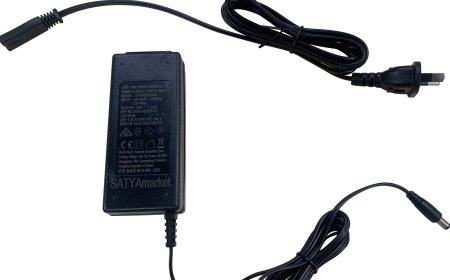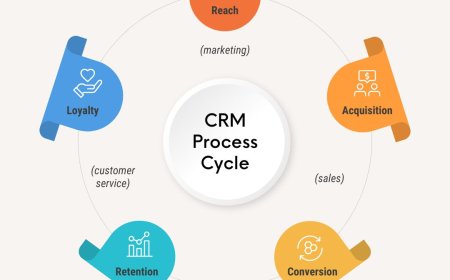Gaming Consoles vs. PC: The Final Verdict!
The article compares PCs and gaming consoles, highlighting the key differences, pros, and cons of each platform. PCs offer greater hardware flexibility, better graphics potential, and access to a wider range of games, including mods. They are ideal for gamers who value customization and performance. Consoles, on the other hand, provide a more user-friendly, plug-and-play experience with exclusive titles and consistent performance across devices. They are often more affordable and easier to maintain. Ultimately, the choice between PC and console depends on individual preferences, budget, and gaming priorities.

Gaming has come a long way. From blocky arcades to breathtaking virtual realms, gaming has become an entertainment powerhouseand at the core of this evolution is a timeless debate: PC vs Console.
Whether you're a hardcore gamer or just someone who plays games occasionally, the platform you choose can either make or break your gaming experience. So, how do consoles compare with PCs? Lets break it down by looking at each side individually.
PC Gaming
Performance & Graphics

When it comes to sheer performance, high-end gaming PCs are u
nmatched. Users can upgrade components such as GPUs, CPUs, and RAM to push games to their maximum potential. Features like ultra-high frame rates, 4K visuals, ray tracing, and mod support make PC gaming visually stunningif youre ready to invest the money.
Price & Accessibility
Gaming PCs are expensive. A decent mid-range setup can cost anywhere from $800 to $1,500and thats not including accessories like monitors, keyboards, and mice. Building a custom PC also requires some technical knowledge, which can be a barrier for newcomers.
Game Library & Exclusives
PC players have access to massive digital libraries through platforms like Steam, Epic Games Store, and GOG. Games are often cheaper, sales are frequent, and mods add extra depth. Backward compatibility is rarely an issue, and indie games flourish on PC.
This is where the heart of the PC vs Console battle heats upeach platform offers something unique in its library. While PC wins in variety and flexibility, consoles counter with platform-defining exclusives.
Consoles shine with exclusive titles. PlayStation offers hits like God of War and The Last of Us, Xbox has Halo and Forza, and Nintendo owns franchises like Zelda, Mario, and Pokmon. These exclusives often define console appeal.
Upgradability & Longevity
Customization is one of the PCs greatest strengths. Instead of replacing the entire machine every few years, users can upgrade specific partslike adding a better graphics card or more storageextending the systems life and performance.
Multiplayer & Online Services
Online play is usually free, with built-in tools for social interaction like voice chat, screen sharing, and streaming. No monthly subscription is typically required for multiplayer access.
Portability & Living Room Play
Traditional gaming PCs are not portable and usually stay in a dedicated space. Gaming laptops exist but often sacrifice performance or raise costs. While its possible to connect a PC to a TV, its not the most convenient option for casual living room play.
Console Gaming

Performance & Graphics
Modern consoles like the PlayStation 5 and Xbox Series X offer impressive performance for their price, including 4K resolution and fast load times. Though they cant match high-end PCs, they deliver stable and optimized gameplay without technical hassles.
Price & Accessibility
Consoles are far more affordable and beginner-friendly. With prices between $300$500, you get a ready-to-play system out of the box. No assembly, no part pickingjust plug it in and start gaming.
Game Library & Exclusives

Consoles shine with exclusive titles. PlayStation offers hits like God of War and The Last of Us, Xbox has Halo and Forza, and Nintendo owns franchises like Zelda, Mario, and Pokmon. These exclusives often define console appeal.
Upgradability & Longevity
Unlike PCs, consoles have fixed hardware. Youll get occasional software updates, but the system will remain the same until the next console generationusually every 6 to 7 years.
Multiplayer & Online Services
Online gaming on consoles typically requires paid subscriptions like Xbox Live or PlayStation Plus. These come with benefits like cloud saves and free monthly games. Crossplay is increasingly supported, though some limitations still exist.
Portability & Living Room Play
Consoles are designed for convenience and portability within the home. Theyre compact, easy to move, and ideal for living room play and local multiplayer. The Nintendo Switch even doubles as a fully portable handheld system.
Final Verdict

So, which is better in the PC vs Console debate?
That depends entirely on your gaming preferences:
-
Choose a PC if you want top-tier graphics, upgradability, access to a massive game library, and the freedom to mod or tweak your experience.
-
Choose a console if you prefer affordability, simplicity, exclusive titles, and a more social or couch-friendly gaming setup.
In the end, both platforms offer incredible gaming experiences. Many gamers even use both to enjoy the best of both worlds. Its not just about the machineits about how and what you love to play.
Which is your go-to gaming platformand why? Share your thoughts in the comments below!






















